Tiles are the most hygienic and easily maintained wall and floor surfaces you can choose.
Tiles are virtually non-porous, tiles tend not to absorb any liquid, smoke, or fumes. In other words, it’s very hard to get tiles dirty and they will only need a quick clean once a week!

Washing after laying:
Do an initial clean with a low PH stripper to remove cementitious residues such as grout haze and kiln dust, Aquamix have a fantastic product called Grout Haze Clean Up.
If the tile is polished porcelain, it may have a factory applied protective wax on the surface - this should be removed with a high PH cleaner such as Aquamix Heavy Duty Tile & Grout Cleaner.
We always recommend you seal your grout with a penetrating grout sealer - a quick application can last years and makes grout cleaning and maintenance a breeze.
Routine cleans will help keep your tiles clean and healthy

This will remove most of the dirt and grit from the area. As well as making the next step much easier, getting rid of these little abrasive particles will protect your tiles from becoming scratched - tiles can scratch!

Use with a solution of warm water with a drop or two of vinegar or disinfectant added. Be sure not to use too much water and ‘flood’ the tiles, as this will just wash the dirt into the grout. A damp mop or cloth will easily be able to lift the dirt from the surface of the tiles.

Aquamix Concentrated Stone & Tile Cleaner is a concentrated pH neutral cleaner designed for all tile surfaces. Strong enough for the professional, yet gentle enough for the do-it-yourself specialist. Stone & Tile Cleaner is a nontoxic cleaner that can handle the most difficult stains, yet is gentle enough for everyday use.
General Tile Cleaning
Most tile cleaning can be completed using warm water and a pH-neutral cleaner such as Aquamix Concentrated Stone & Tile Cleaner. For occasional greasy or stubborn stains, use a stronger organic or pH-alkaline cleaner such as Aquamix Heavy-Duty Tile & Grout Cleaner. Always test the product on an inconspicuous area first.
- Avoid cleaners containing acid, such as many bathroom and bath cleaners, as these can damage grout over time.
- Do not use products with lemon, citrus, vinegar, or other acidic ingredients on natural stone, as they may dull or etch calcareous stone surfaces.
- Avoid wax or polish-based cleaners, as these can build up over time and attract dirt.
Since porcelain, ceramic, and natural stone surfaces vary, ensure any cleaner you use is suitable for the specific surface. Tile Depot recommends cleaning products designed specifically for ceramic tiles or natural stone for the best long-term results. Note that some tile cleaners for ceramic surfaces are unsuitable for natural stone. Always test in an inconspicuous area.Rinse tiles thoroughly with clean water to remove any cleaning solution residue.
For polished porcelain tiles, steam mops are a chemical-free alternative that leaves tiles looking pristine!
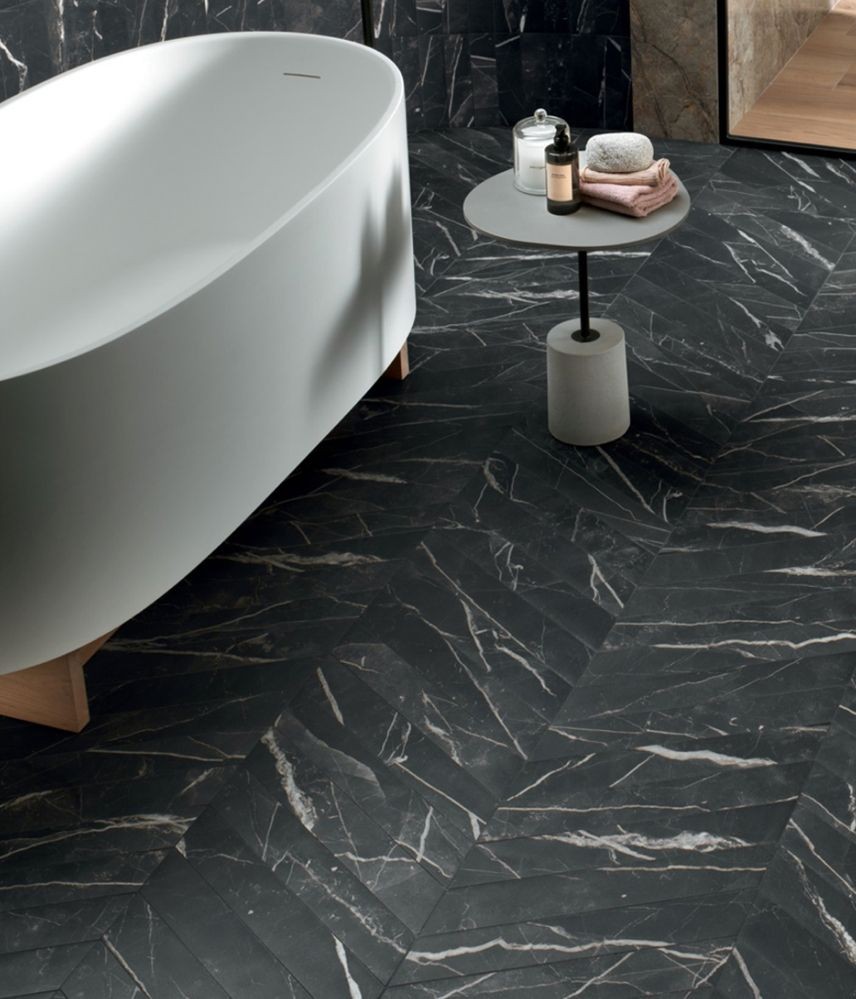
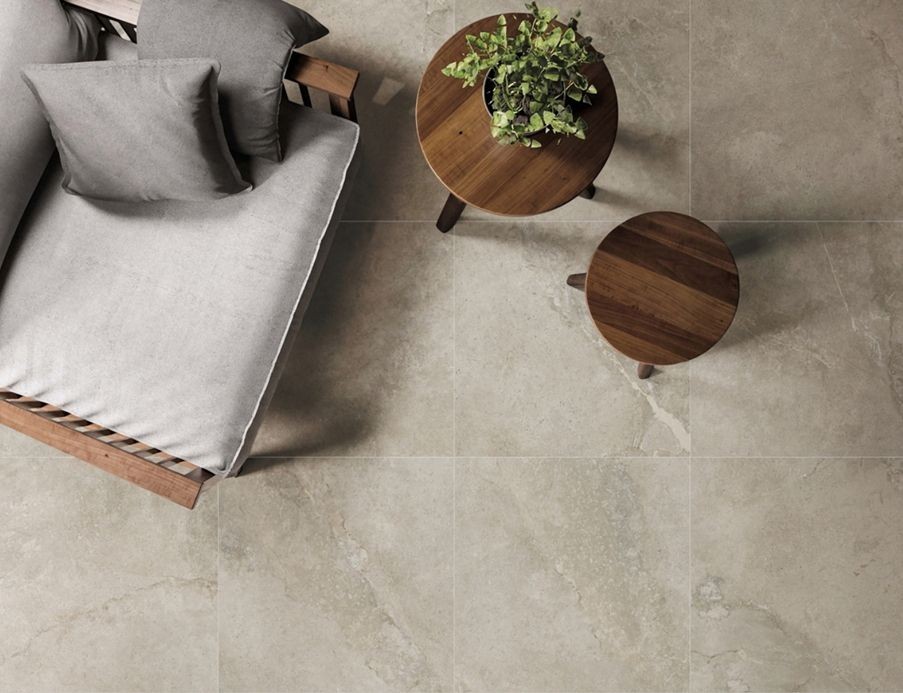
Cleaning Ceramic & Porcelain Tiles
Ceramic and porcelain tiles are robust, stain-resistant, and easy to maintain.
Follow these expert tips to keep them looking new:
- Quickly wipe up spills, especially on unglazed surfaces.
- Sweep or vacuum tiles regularly to remove dust and grit.
- For deeper cleaning, use warm water and a damp microfiber mop or cloth with Tile Depot’s recommended Aquamix Concentrated Stone & Tile Cleaner. Microfiber grabs dirt far more effectively than standard mops and cloths.
- Avoid overly wet mops. A microfiber spray mop, such as the Bona Mop, provides a streak-free clean.
- Mop from one side of the room to the other and avoid walking on tiles until dry.
- Clean wall tiles from top to bottom.
- Avoid soap-based cleaners that leave a film attracting dirt.
- Don’t overuse cleaning solution in water to prevent streaks or marks.
Cleaning Microtec Textured Tiles
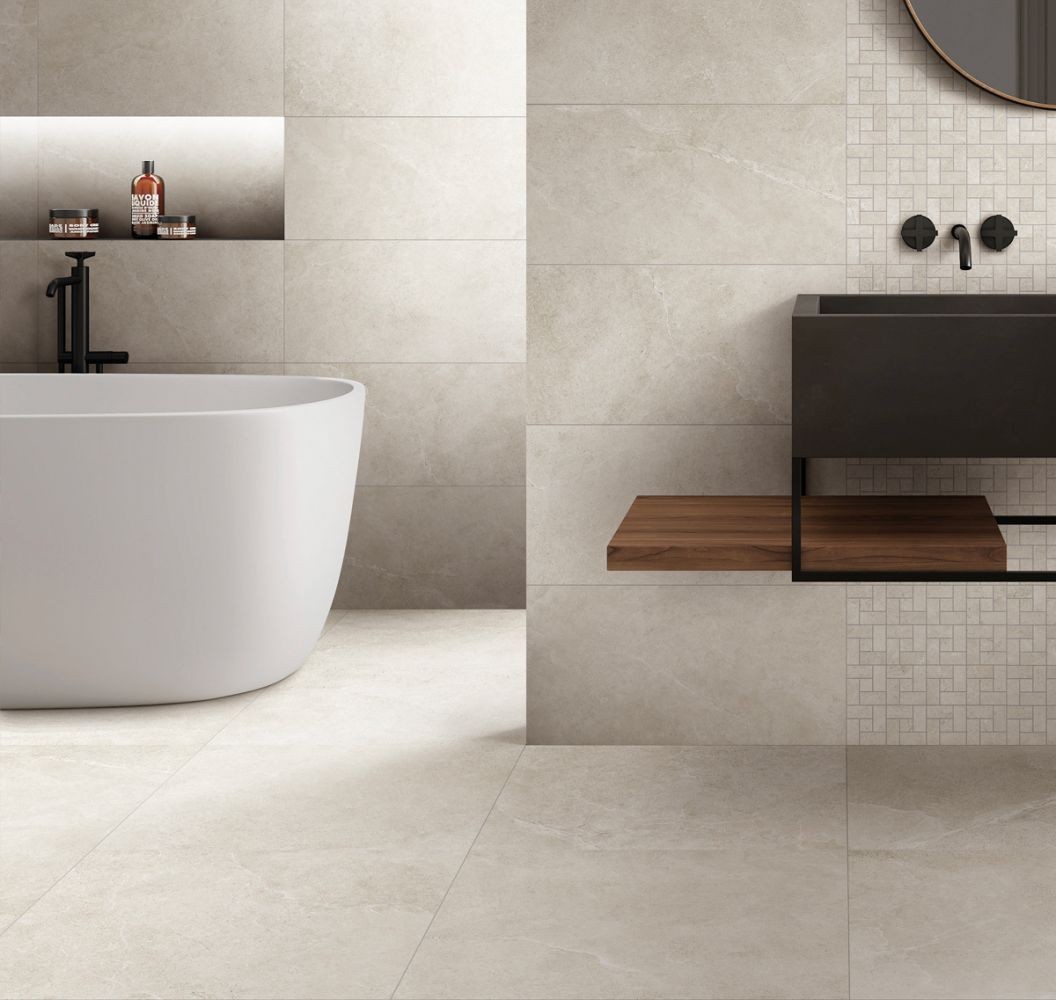
Microtec tiles offer seamless transitions and are simple to maintain.
Whilst they have a smooth surface and avoid the traditional sand paper grit like surface of traditional antislip tiles – they do microscopically provide a ‘rough’ surface where dirt can build up without regular care. It is important to consider the location, expected foot traffic and colour of the product when selecting Microtec tiles.
Your tiler should also be made aware of the product they are handling and the importance of a good grout clean up upon completion.
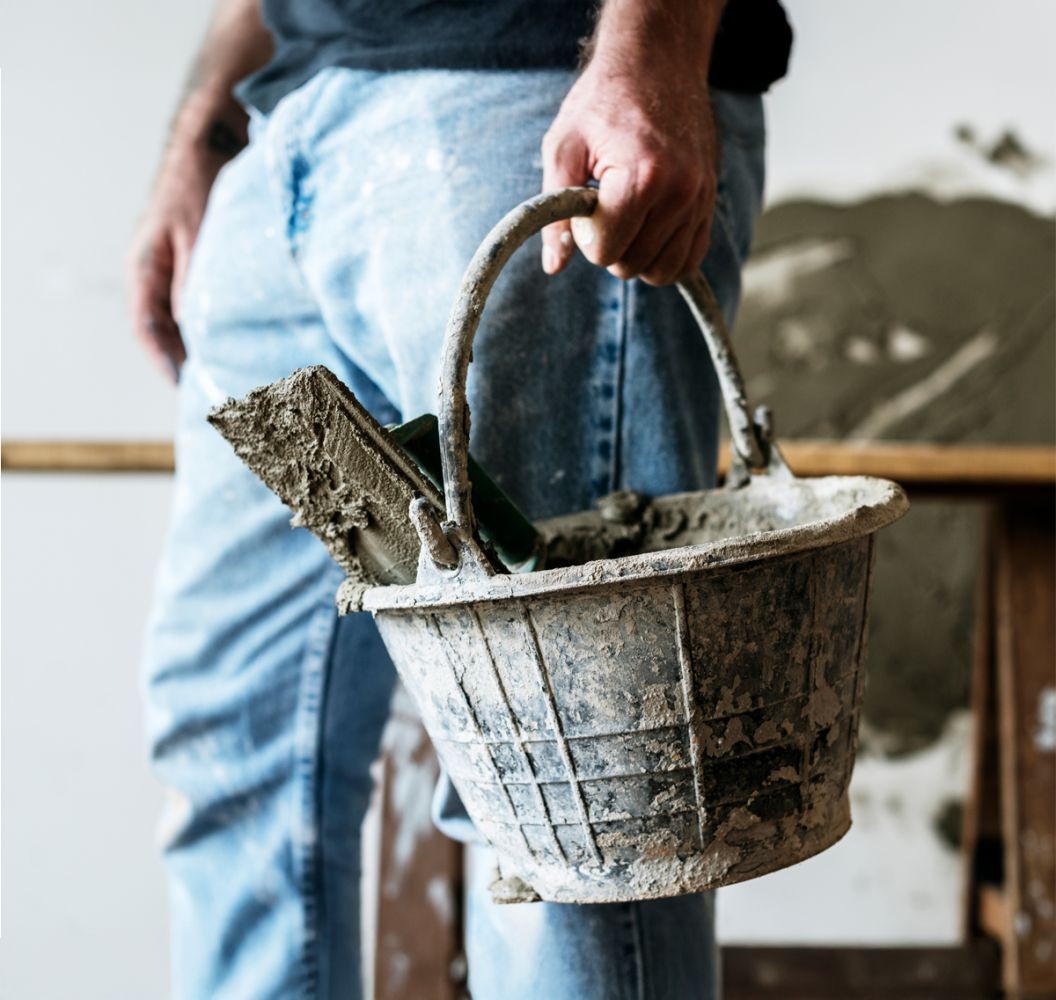
- It is important to start wiping off excessive grout approximately 15 minutes after application or when grout begins to harden.
- A water change should be conducted every 4m2. This helps to remove the polymer from grouting, which causes dirt and debris sticking to the tile surface.
- A microfibre cloth is recommended to be used to buff-off grout residue after the surface becomes dry.
- Aquamix grout haze cleaner is recommended to be used if there is still grout haze or other stubborn marks after the above process.
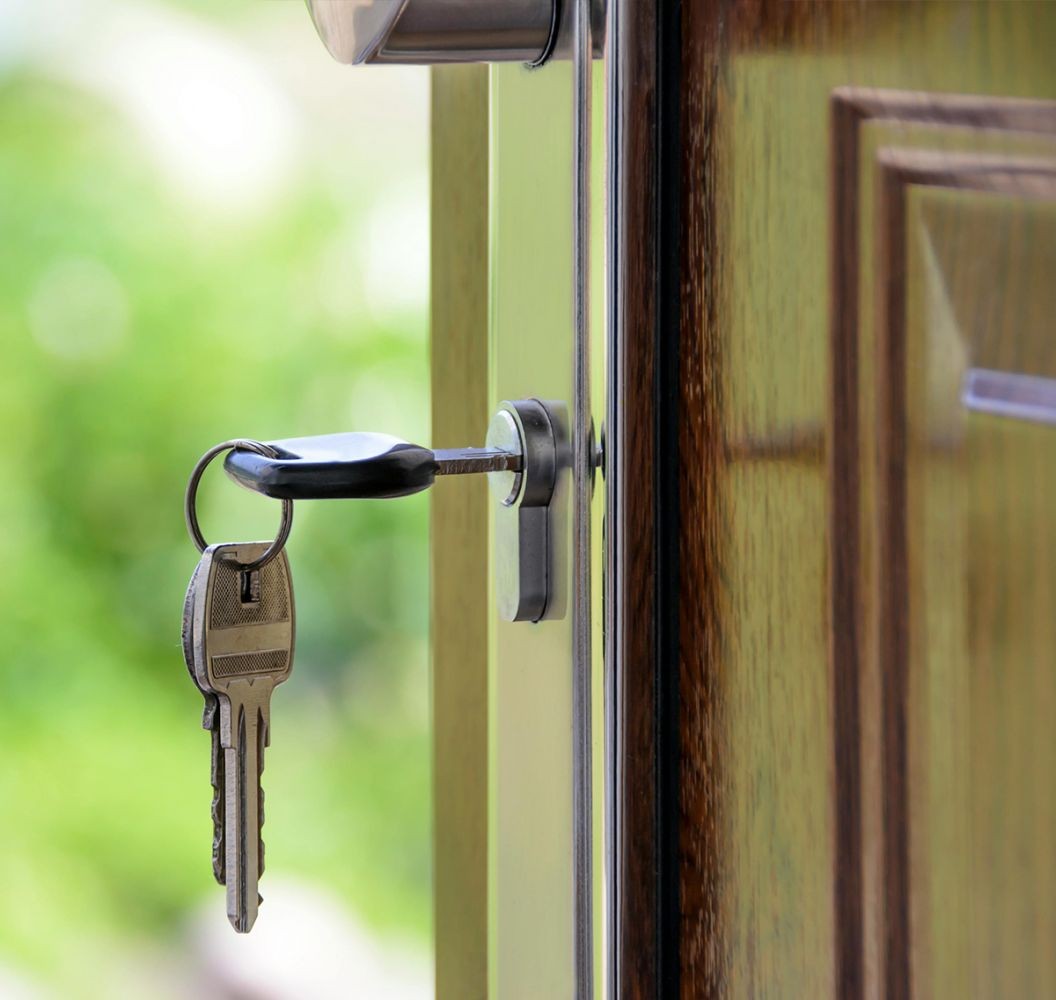
Ongoing maintenance we recommend micro fibre products such as Bona mops and a pH-neutral cleaner such as Aquamix Concentrated Stone & Tile Cleaner .
For excessive dirt build up use Lithofin Intensive Cleaner.
Cleaning Outdoor Tiles
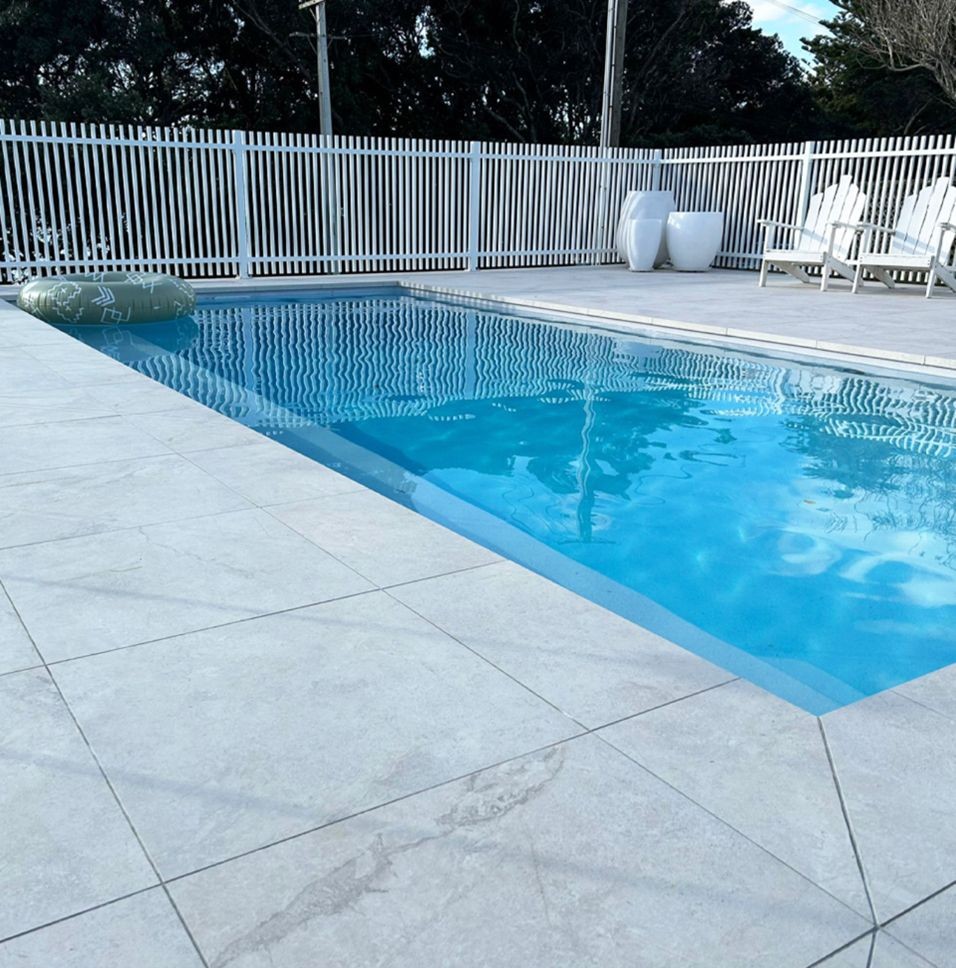
Outdoor tiles withstand the elements but still need care to stay vibrant:
- Hose down the area to wet the surface.
- Sweep or scrub with a strong-bristled broom.
- Use Miracle Tile & Stone Cleaner for mild grime.
- Hose off remaining dirt. For large areas, work in sections starting near the house and moving outward.
- For stubborn dirt build up, cement residue, rust and rust discolouration use Lithofin MN Builders Clean.
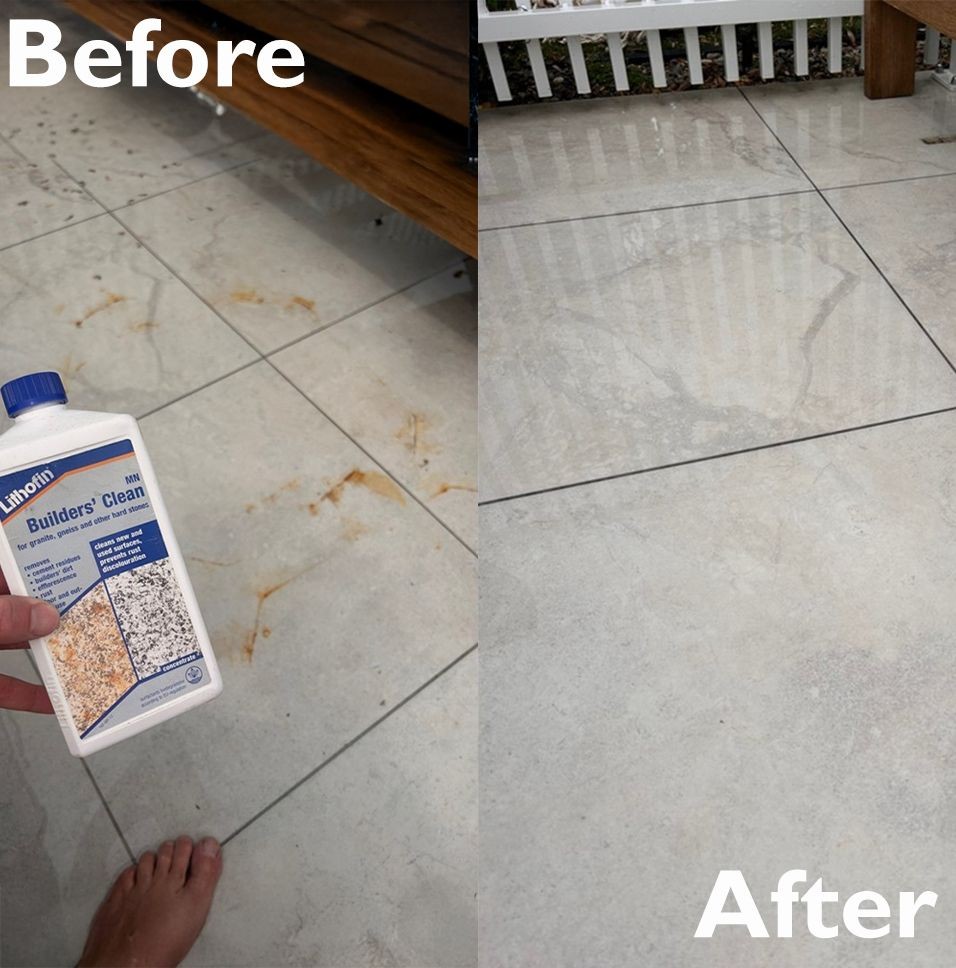
A before and after of rust marks left on white porcelain antislip tiles from a decaying old umbrella holder. A coarse scrubbing with Lithifin MN Builders clean removed most marks effortlessly.
Cleaning Natural Stone & Efflorescence
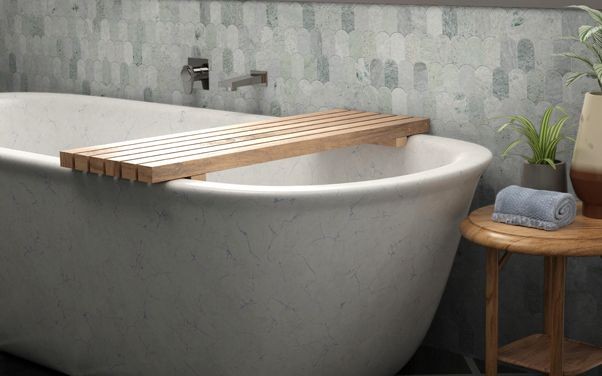
Natural stones like marble, travertine, or limestone contain calcium carbonate, which acids can damage. Follow these precautions:
- Avoid acidic cleaners like vinegar, lemon juice, ammonia, or abrasive products that can dull or scratch the surface.
- Clean with a pH-neutral cleaner using a soft cloth for surfaces or a clean rag mop for floors.
- Use minimal cleaner to prevent streaks, and rinse thoroughly after washing. Change rinse water frequently.
- Avoid scouring pads, abrasive creams, and tools that can scratch the surface.
- Mop interior floors regularly with a dust mop. Sand, dirt, and grit are the main culprits of stone damage. Place mats or rugs at entrances to minimize grit. Ensure mats have non-slip backing.
- Do not use worn vacuum attachments or wheels that could scratch surfaces.
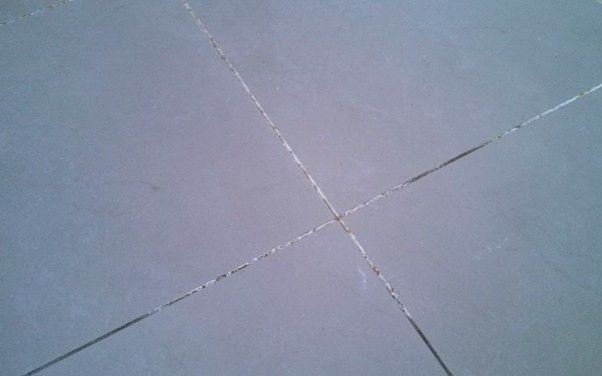
Efflorescence appears as a white powder on outdoor tiles and joints, caused by moisture bringing soluble salts to the surface.
- Brush off the powder with a stiff brush and vacuum.
- Wetting the surface may dissolve salts, causing them to reappear.
- For leaching (continuous salt deposits from water under tiles), inspect grout and movement joints for cracks and repair them. Then, clean the residue with a specialized efflorescence cleaner. Consult Tile Depot for recommendations if the issue persists.
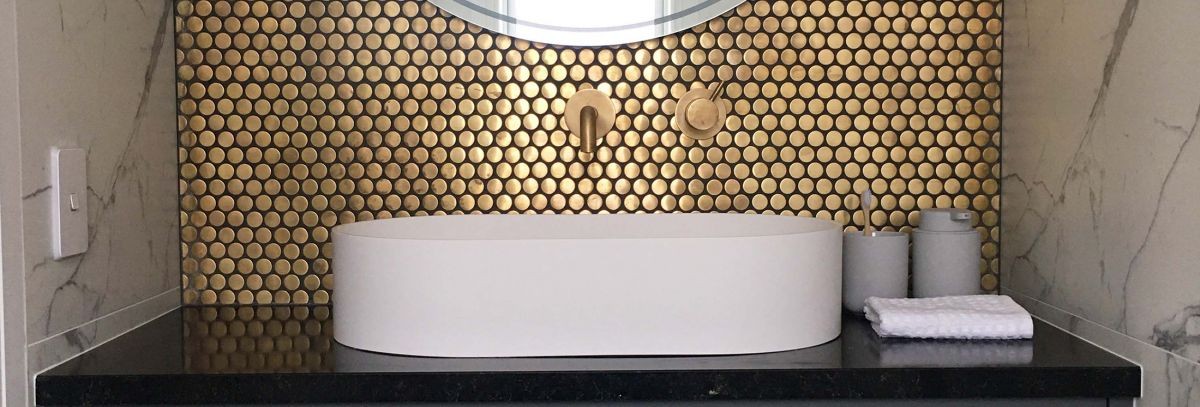
Cleaning Metallic Tiles & Glazes
Tiles are widely known for their durability and longevity. However, metallic finishes lack a protective glazed layer, making them more susceptible to damage. Harsh scourers, abrasive creams or powders, and strong chemical cleaners can easily harm these finishes. Fortunately, such products are generally unnecessary for cleaning tiles. Warm water with a few drops of a pH-neutral cleaner is usually sufficient. After cleaning, simply wipe the tiles with a soft cloth.
It's important to note that metallic tiles and glazes are sensitive to acidic substances. Avoid exposing them to citrus juices, citrus-based cleaners, or other acidic products. Metallic finishes are often used on tiles to create striking effects. While they add a touch of elegance, these soft metals are vulnerable to damage from abrasives and harsh cleaning agents, so handle them with care. Metals such as copper and brass will patina over time as they oxidise so should not be used in wet areas.
Please note:
- There is no need to use any soaps, detergents, powders, or chemical cleaners for regular cleaning. In fact, many of these can actually make it harder to keep your tiles clean, especially with prolonged use. If you do decide to use any of the above kinds of cleaners (such as for a more heavy-duty clean), it is important that you rinse thoroughly with clean water to completely remove the cleaner.
- Soaps (and many detergents that contain soap) can leave a thin film of ‘soap scum’ on the surface of your tiles if they aren’t completely rinsed. This layer of soap can ironically - trap dirt and grease and can build up over time to the point where your tiles actually appear to change colour.
- Many chemical cleaners are either acidic or alkaline (base) and, if not properly rinsed, can damage the surface of your tiles or later react with dirt and grease to cause other problems. If you require something a bit stronger for problem areas we generally recommend Aquamix Concentrated Stone and Tile cleaner or Miracle Tile and Aquamix Nanoscrub.
- Wet areas such as showers have slightly different cleaning needs as they are regularly subjected not just to moisture, but often to body oils, soaps, and higher amounts of dirt as well.
- A good all-purpose cleaner, a plastic scrubbing brush, and a little elbow grease will remove most regular build-up. Remember always to rinse thoroughly after use of cleaners. A water and vinegar solution is ideal for removing more stubborn hard water deposits. Again, cleaning once a week will generally be often enough.
- Bacteria and mould can sometimes grow in damp areas, particularly where it is also humid or there is little ventilation. Mould can be removed by spraying or wiping with a chlorine bleach. This should be allowed to stand for 5 minutes before rinsing thoroughly with clean water.
Aquamix and Miracle products are available at your nearest Tile Depot outlet. Always read the manufacturer’s directions carefully.
Want to see our full range of Tile Cleaners?



